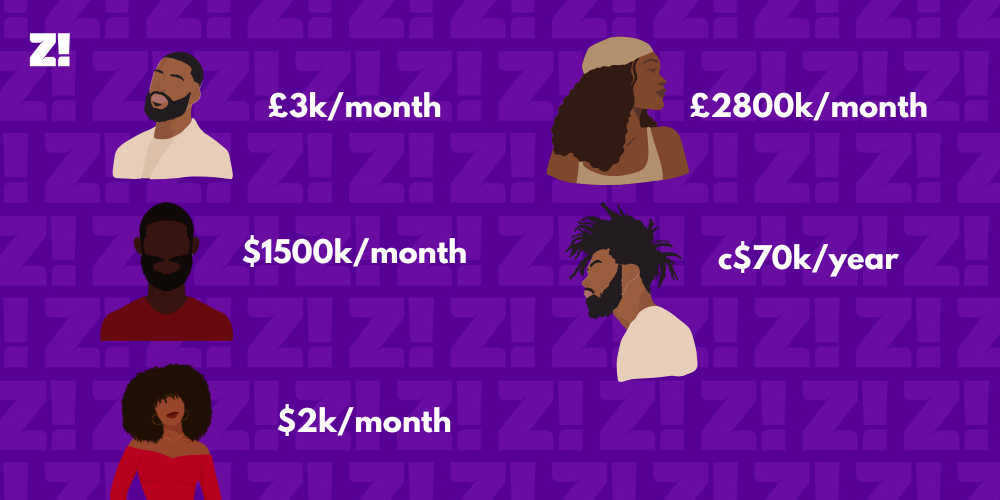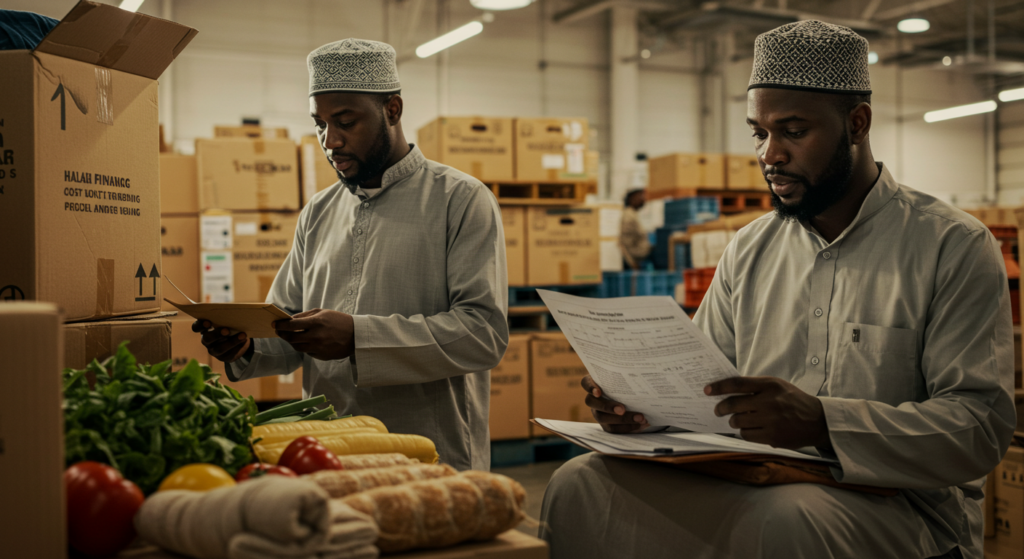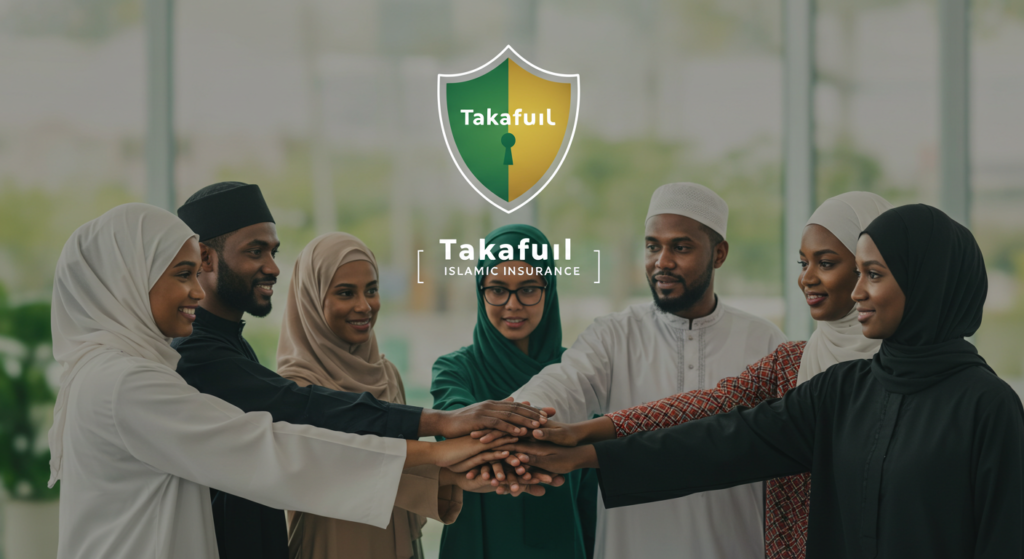Valentine’s Day is around the corner, and you know what that means — sappy rom-coms, overpriced flowers, God whens, and your aunties asking when you’re getting married (as if your relationship status is their business).
Whether you’re single and ready to mingle, booed up and in love, or just looking for a good laugh, this list is for you. From Netflix to Showmax, Prime Video to YouTube, and even the cinema, here are 25 of the best Nollywood romance movies to watch this Valentine’s Day.
What to watch at the Cinema
Love Lockdown (2025)
Runtime: 1h 45m
Director: Lyndsey F. Efejuku
Yemi (Andrew Bunting) is about to get married when COVID-19 hits. With his fiancée (Yewande Osamein) out of town, he crosses paths with an old flame (Detola Jones) who he hasn’t fully gotten over yet. If you’re in a relationship, there are a few lessons to be learned about temptation, commitment, and trust in this movie.
Love Lockdown is showing in cinemas nationwide.
Reel Love (2025)
Runtime: TBD
Director: Kayode Kasum
Tomide (Timini Egbuson), a social media influencer, and Rachael (TJ Omusuku), a small-scale entrepreneur, start off as enemies. However, business brings them together after Tomide’s fiancée suggests they pretend to be an item to boost Tomide’s online presence.
This is Timini’s first movie as an executive producer, and it will drop in cinemas on Valentine’s Day.
Reel Love is showing in all cinemas nationwide from February 14th.
Something About the Briggs (2025)
Runtime: 2h 5m
Director: Bukola Ogunsola
A lady (Ariyike Owolagba) turns down a proposal from a suitor (Daniel Etim-Effiong) because she believes that her family, the Briggs, is cursed. Veterans Bukky Wright and Zack Orji meet hotshots Stan Nze and Linda Ejiofor in this romantic family drama that tackles trust, compatibility and marital expectations.
You can’t miss out on this if you love rich people drama.
Something About the Briggs is showing in cinemas nationwide.
Summer Rain (2025)
Runtime: 1h 45m
Director: Joyful Adenike
Two long-lost lovers, played by Daniel Etim-Effiong and Bolaji Ogunmola, reconnect. But one of them is already married with a family of her own. His sudden appearance brings tension to her marriage and family. Will she leave her husband for an old flame?
Summer Rain is showing in cinemas nationwide.
Tarella: Princess of the Nile (2025)
Runtime: 1h 45m
Director: Kayode Kasum & Lolo Eremie
Richard Mofe-Damijo and Nengi Hampson star in this Cinderella-esque drama set in a mythical West African kingdom called Akkaya. It’s a tale about a crown prince (Timini Egbuson) and an orphaned maiden (Okawa Shaznay) who must fight for their love. Imagine your favourite Nollywood romance, but instead of the typical ‘rich guy falls for poor girl’ story, it’s an Egyptian fairytale — complete with Nigerian actors bringing the drama to life.
Tarella is showing in cinemas nationwide.
What to watch on Netflix
Dinner at My Place (2022)
Runtime: 1h 45m
Director: Kevin Luther Apaa
A Nigerian-American man, Nonso (Timini Egbuson), plans to propose to his girlfriend (Sophie Alakija) over dinner. But his ex (Bisola Aiyeola) shows up uninvited. The couple is even further stunned when the ex swallows the ring and begins to eat their food. This is a hilarious comedy about boundaries and why, seriously, you need to block all your exes.
Watch Dinner at My Place on Netflix.
Here Love Lies (2023)
Runtime: 2h 11m
Director: Tope Oshin
This movie follows Amanda (Tope Oshin), a single mom and travel blogger, who finds love again with her American tour guide (Tim Shelburne). Their love story develops from him being a fan of her work to her travelling to New York to surprise him. Who says love is only for the young?
Watch Here Love Lies on Netflix.
Namaste Wahala (2020)
Runtime: 1h 46m
Director: Hamisha Daryani Ahuja
This film follows an interracial couple — a Nigerian woman (Ini Dima-Okojie) and an Indian man (Ruslaan Mumtaz) — who keep their relationship low-key due to cultural differences. But as these things typically happen, they need to move to the next level in their love story, so they find themselves fighting their family to be with each other.
Watch Namaste Wahala on Netflix.
The One for Sarah (2022)
Runtime: 1h 37m
Director: Lyndsey F. Efejuku
This is a story of friendship and love. After a series of relationships, Sarah (Beverly Naya) heals from emotional trauma with the help of her friend (Bimbo Ademoye). Sarah finds happiness, and Cupid smiles on her again.
Watch The One for Sarah on Netflix.
The Royal Hibiscus Hotel (2017)
Runtime: 1h 30m
Director: Ishaya Bako
A struggling chef named Ope (Zainab Balogun) returns to Nigeria to restore her family’s hotel business. Her father (Jide Kosoko) already plans to sell the hotel to a young businessman (Kenneth Okoli), threatening her plans. But everything changes the moment they meet.
Watch The Royal Hibiscus Hotel on Netflix.
ALSO READ: The 10 Best Nollywood Films to Watch on Netflix (Feb. 2025)
What to watch on Prime Video
All’s Fair In Love (2024)
Runtime: 1h 54m
Director: Kayode Kasum
A South African woman (Buhle Samuels) catches the fancy of two Nigerian men (Deyemi Okanlawon and Timini Egbuson), who are also friends. She leads both men on as they fight for her love and attention. If you’re looking for something romantic yet funny, this is your pick.
Watch All’s Fair In Love on Prime Video.
Cake (2022)
Runtime: 1h 54m
Director: Prosper Edesiri
After taking a long time to decide, a baker named Tomiwa (Tope Tedela) finally sets a date to ask his crush (Sophia Alakija) out. But unluckily for him, she’s already engaged to someone else (a douchebag, by the way). Tomiwa, refusing to quit, tries to win her heart. (Fellas, seriously, if you love a girl, tell her.)
Hey You! (2022)
Runtime: 1h 30m
Director: Uyoyou Adia
Timini Egbuson and Efe Irele star in this romantic film about a tech bro who’s shy about meeting women and becomes obsessed with an adult content creator he meets on FANSALONE, a kind of OnlyFans site. He is later shocked to discover that she is his next-door neighbour.
Watch Hey You! on Prime Video.
Love In A Pandemic (2023)
Runtime: 1h 28m
Director: Akay Mason
Bolanle (Nancy Isime) accidentally finds love when she misdialled a stranger’s (Deyemi Okanlawon) number during the COVID-19 lockdown. The call develops into a friendship between her and the stranger named Alex. It didn’t take long before they caught feelings for each other. But they have an obstacle: Alex’s ex-girlfriend (Teniola Aladese). She stands in the way of their love.
Watch Love In Pandemic on Prime Video.
The Wedding Party (2016)
Runtime: 1h 50m
Director: Kemi Adetiba
A former playboy, Dozie (Banky W), falls in love with Dunni (Adesua Etomi-Wellington) and plans their marriage. But their love is tested, from the rivalry between their mothers to Dozie’s ex showing up uninvited. If you live for rich people’s problems and romance, cheers.
Watch The Wedding Party on Prime Video.
What to watch on Showmax
Dead Serious (2024)
Runtime: 2h
Director: Moses Inwang
Sharon Ooja-Nwoke and Sabinus are lovers in this drama. However, due to his financial status, Nkem Owoh, her father, refuses to let Sabinus marry his daughter. For him, his rich, young boss, who’s also interested in her, will make a better husband. Who said “he makes me laugh” can’t win over “he’s rich”?
Watch Dead Serious on Showmax.
For the One (2023)
Runtime: 1h 37m
Director: Chinneylove Eze
Maurice Sam plays an area playboy who meets his waterloo. After he is unexpectedly dumped by one of his flings, Sunshine Rosman, he embarks on a rampage to find her and get her to fall in love with him. But it turns out water does not pass garri for his Playboy era.
Leg Over (2022)
Runtime: 1h 23m
Director: Perekeme Odom
An unhappy wife (Mary Lazarus) is stuck between her selfish husband (Kachi Nnochiri) and her old-time lover (IK Ogbona). She struggles between loyalty to her marriage and desire for happiness with her ex. But the ex has fallen out of love with her and seizes the opportunity to act out his ulterior motives. This drama is a must-see for those in relationships and aspiring lovers.
Special Assistant (2024)
Runtime: 1h 33m
Director: Great Valentine Edochie
A female boss (Lilian) falls in love with her assistant (Jide Kene Achufusi) and uses her power to compel him to reciprocate that love. It turns out he is in a long-distance relationship with his girlfriend and now has to choose between his job and his happiness.
Watch Special Assistant on Showmax.
The Counsellor (2024)
Runtime: 1h 55m
Director: Muyiwa Aluko
This is the story of Aisha (Teniola Aladese) and Gbenro (David Omoo Eyo), who unexpectedly meet just before Valentine’s Day. They’re still dealing with the heartbreaks they suffered from their exes, but they are forced to question if it was love to begin with.
Watch The Counsellor on Showmax.
What to watch on YouTube
Fiance For A Day (2024)
Runtime: 1h 28m
Director: Stanley Obi
Emen (Omoni Oboli) is pressured by her mother to get married, but she isn’t ready. Her ex, Tobi (Eso Dike), is in the same situation. By fate or coincidence, they meet again after a long time at a bar and get drunk together. It leads to a one-night stand that rekindles their old love.
Watch Fiance For A Day on YouTube.
Odd of Love (2024)
Runtime: 2h 37m
Director: Ben Cassie
Prince Nwafor (Ejike) and Bimbo Ademoye (Becca) star in this film about a rich babe and broke guy in love. To get her attention, he fakes his lifestyle. After their relationship starts, it becomes harder to keep up the act. He loses focus on his game plan and begins to develop feelings for her.
Open Marriage (2024)
Runtime: 1h 59m
Director: Uche Alexmoore
After Remy (Maurice Sam) cheats on his wife (Sunshine Rosman), she cheats back to give him a taste of his own medicine. Over time, the man she cheats with begins to treat her better than her husband. This causes tension and cracks in her home.
Watch Open Marriage on YouTube.
Price of Love (2024)
Runtime: 1h 42m
Director: Obi Stanley
This is a messy web of love and deceit. A mother, played by Harriet Akinola, takes her matchmaking game to the next level by marrying a new wife (Ekama Etim-Inyang) for her son (Eddie Watson) — despite him already being in a long-term relationship. Instead of fighting against his mother’s wishes, he breaks up with his babe (Cynthia Clarke) and settles for the new wife. But his girlfriend is ready to fight for her love.
Watch Price of Love on YouTube.
The Big Fat Lie (2019)
Runtime: 1h 27m
Director: Darasen Richards
James (Blossom Chukwujekwu), a hotel worker, pretends to be a Navy captain to impress his celebrity crush, Eni (Tana Adelana). He manages to take her on a date, but after that, it’s lies on top of lies. His lies end up getting him into trouble with the force.
Watch The Big Fat Lie on YouTube.








































